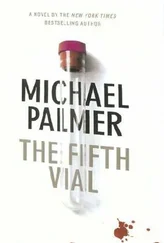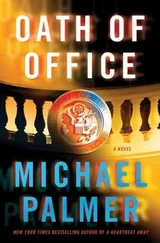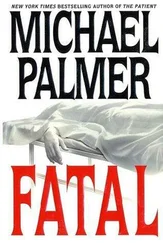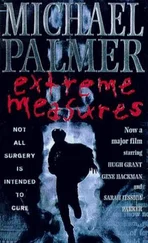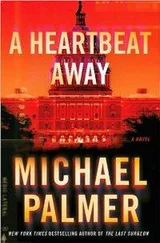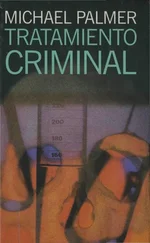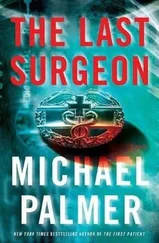Michael Palmer - Natural Causes
Здесь есть возможность читать онлайн «Michael Palmer - Natural Causes» весь текст электронной книги совершенно бесплатно (целиком полную версию без сокращений). В некоторых случаях можно слушать аудио, скачать через торрент в формате fb2 и присутствует краткое содержание. Жанр: Триллер, на английском языке. Описание произведения, (предисловие) а так же отзывы посетителей доступны на портале библиотеки ЛибКат.
- Название:Natural Causes
- Автор:
- Жанр:
- Год:неизвестен
- ISBN:нет данных
- Рейтинг книги:5 / 5. Голосов: 1
-
Избранное:Добавить в избранное
- Отзывы:
-
Ваша оценка:
- 100
- 1
- 2
- 3
- 4
- 5
Natural Causes: краткое содержание, описание и аннотация
Предлагаем к чтению аннотацию, описание, краткое содержание или предисловие (зависит от того, что написал сам автор книги «Natural Causes»). Если вы не нашли необходимую информацию о книге — напишите в комментариях, мы постараемся отыскать её.
Natural Causes — читать онлайн бесплатно полную книгу (весь текст) целиком
Ниже представлен текст книги, разбитый по страницам. Система сохранения места последней прочитанной страницы, позволяет с удобством читать онлайн бесплатно книгу «Natural Causes», без необходимости каждый раз заново искать на чём Вы остановились. Поставьте закладку, и сможете в любой момент перейти на страницу, на которой закончили чтение.
Интервал:
Закладка:
There were still more data to be gathered, but by far the most persistently troublesome aspect of her research to this point was the prenatal supplements given each woman by Sarah Baldwin. A botanist at the Smithsonian and a friend on the faculty of Emory University had provided some preliminary data on the nine components. But much more detailed biochemical information was needed. Rosa's instincts were telling her that although the components of the mix might serve as some sort of cofactor in a lethal biological reaction, they were, in and of themselves, harmless. But the tools of her trade were numbers and probabilities, not instincts.
"Excuse me, Ramona," she called out to the night clerk whose desk was on the other side of a broad bank of files. "I just want to be sure there are no more records in the group we're working on."
"Seven years of women who delivered here and required transfusions during or after their deliveries-you've gotten them all. Mrs. Suarez, do you know that since you came to MCB you've spent more time down here than the whole medical staff combined?"
"I'll bet I have. Well, this will be my last night for a while. Tomorrow I'm heading back to-"
Rosa stopped in midsentence and stared down at the chart in front of her. It belonged to Alethea Worthington, the second of the DIC cases. She had dissected the record word by word, just as she had the records of Constanza Hidalgo and Lisa Summer. What caught her eye at this moment, though, wasn't something on the page, but between it and the previous one. She picked up the chart and stared at it from several angles.
"Mrs. Suarez, is everything all right?" the clerk called out.
"Oh. Yes. Everything's fine, dear. Ramona, would you happen to have a pocket knife or a nail file?"
"I have a Swiss Army knife in my bag, so I guess that means I have both."
"Perfect. And could you please bring me back those two charts of-"
"Summer and Hidalgo. I know. I know."
"Thank you, dear."
Using the lenses of her bifocals as magnifiers, Rosa peered along the cleft where the pages of the chart were held together by a flexible metal binder. At the spot where the arms of the binder passed through the pages, small, jagged edges of paper protruded. Rosa marked the pages on either side of the fragments and then carefully loosened the binder just a bit. Next she slid the largest blade of the Swiss Army knife along the space beside one of the arms. Two minute scraps of paper dropped out onto the table.
Rosa gently brushed the fragments into an envelope and then convinced herself that similar pieces were tucked behind the other arm. She left those in place and tightened the binder back as it had been. Pages-probably two of them-had almost definitely been torn out of the record. It took most of ten minutes to find identical fragments in Constanza Hidalgo's chart. The tiny bits of progress notepaper represented at least two and possibly three missing pages.
Lisa Summer's chart was by far the thickest of the three. By the time Rosa convinced herself that there was no physical evidence of missing pages, it was nearly eleven. She piled the record on the others and, for the first time in two hours, stood and stretched. The meaning of her discovery was not at all clear. But even though the Summer chart seemed untouched, the finding that at least two of the three DIC records had been tampered with was significant. Of that she had little doubt.
Outside, the rainstorm had ended. A few faint stars were visible in the black velvet sky. Rosa felt energized by the sudden new twist. Part of her wanted to stay up all night as she had so often done, studying and working through puzzles until the answers came. But she was sixty now, and the cost of that sort of exuberance was just too unpredictable. Facing a busy day in Atlanta, she needed to pack and get at least a few hours of sleep before her early-morning flight.
She wanted desperately to share what she had found with someone-almost anyone who could be a sounding board and give her feedback. Verbalizing her ideas and streams of consciousness with colleagues had once been an invaluable tool. But the wounds from BART, though now more than two years old, were still painful. And that refractory pain reminded her over and over to trust as little as necessary.
Rosa gathered her things, thanked the clerk, and promised to be back before too long. Then she left the building on the campus side. Two women dead of a mysterious medical complication, and both of their charts altered. Rosa searched her imagination for some sort of innocent explanation but could conjure up none. What had been a fascinating epidemiological puzzle had suddenly turned sinister.
Sarah shook hands with the five MCB representatives and thanked each for his willingness to help in her defense. The meeting, which had gotten off to such a tense and confrontational beginning, had actually ended up accomplishing a good deal. All concurred that the key to a quick resolution of the Grayson suit lay in finding an identical case of DIC in an end-stage labor patient-whether at MCB or any other hospital-who had never had contact with Sarah.
At Matt Daniels's suggestion, Paris and Snyder agreed to contact their associates around the country, and Blankenship to institute an in-depth search of the medical literature. Arnold Hayden vowed to stay in close contact with Daniels, and Colin Smith gave assurances that any expenses incurred by Hayden or his staff would be covered by the hospital. Finally, the group pledged to present a unified front to Jeremy Mallon and the press. Unless and until she was proven responsible beyond reasonable doubt, Sarah Baldwin was innocent of any wrongdoing. Tomorrow morning, in a show of support, Eli Blankenship would accompany Sarah and Matt to the shop of her Chinese herbalist.
"Nice going tonight," Sarah said as Matt retrieved his coat and umbrella. "I think you handled a very difficult situation with a lot of restraint and class."
"Nonsense. If you hadn't gone to bat for me, I would have been out of the game."
"I'm not much of a baseball aficionado," Sarah said, "but isn't it true that if someone goes to bat for you, you are out of the game?"
Matt's grin was, for the first time, spontaneous and unstrained. And Sarah added it to the growing list of things she liked about the man.
"I still don't know why the claims adjuster at MMPO selected me for this case," he said, "but I'm glad he did. I'm not as slick as most of the attorneys I oppose, but I promise you, I'm a fighter and a survivor. I do my homework, and fortunately, I'm smarter than I look."
"I'm not worried. Believe me I'm not. Besides, after tomorrow, I'm hoping we'll be able to go out and celebrate the end of your shortest case ever. Tell me, how did you ever manage to play baseball and get through law school?"
"Well," Matt said, "I was a relief pitcher. I always had good control, but I was never that flashy to watch. From about my second year in the majors on, the press began writing about how I didn't have good stuff-that's speed or movement on my pitches, and about how the Red Sox had no plans to keep me, and how I wouldn't last another year. Finally I had read enough of my own derogatory press clippings to decide that I ought to have something to fall back on. So I started law school in the off seasons. Eight off seasons later I was done. I had been with the Red Sox several times, as well as the Expos in the National League, and Pawtucket in the International League, and I still had a year of major league pitching left in me."
"That's amazing."
"Correction, that's two rabbits' feet, a two-thousand-year-old Egyptian amulet, and that infamous blue ribbon Dr. Blankenship talked about. Plus about a dozen other little rituals."
"You really believe in that stuff?"
"To paraphrase something Mark Twain once said about God, I choose to believe in that stuff just in case there's something to it."
Читать дальшеИнтервал:
Закладка:
Похожие книги на «Natural Causes»
Представляем Вашему вниманию похожие книги на «Natural Causes» списком для выбора. Мы отобрали схожую по названию и смыслу литературу в надежде предоставить читателям больше вариантов отыскать новые, интересные, ещё непрочитанные произведения.
Обсуждение, отзывы о книге «Natural Causes» и просто собственные мнения читателей. Оставьте ваши комментарии, напишите, что Вы думаете о произведении, его смысле или главных героях. Укажите что конкретно понравилось, а что нет, и почему Вы так считаете.


